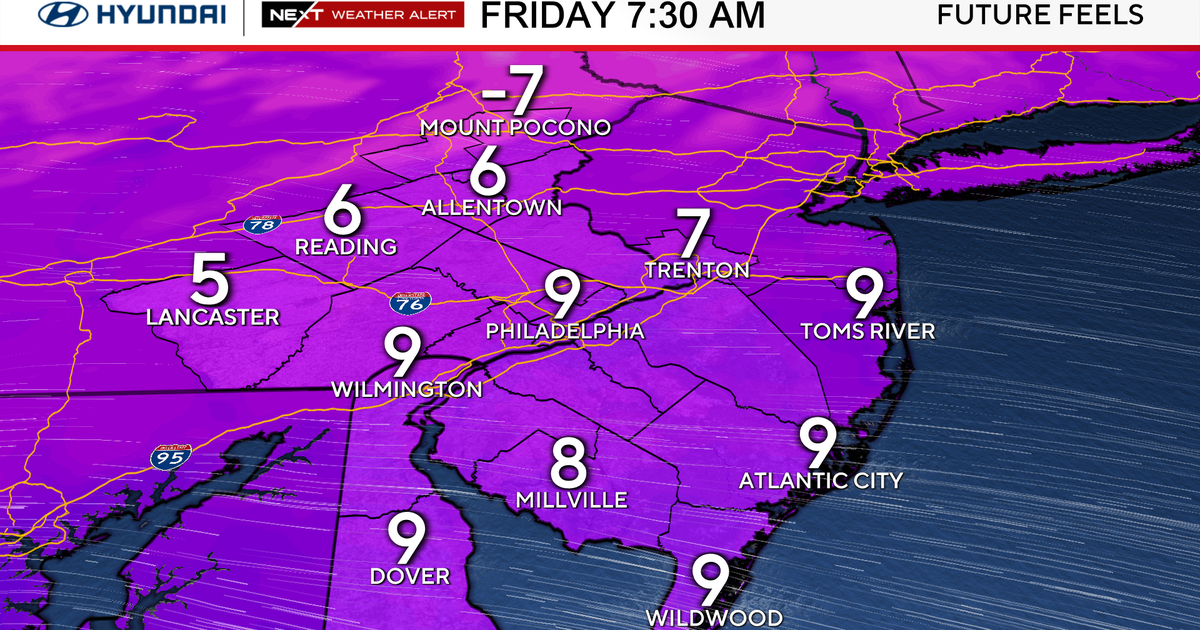Record-breaking heat is scorching France. Experts say climate change is to blame
It has never been so hot in France — at least since humans have kept reliable records. On Friday, many cities near the Mediterranean exceeded 111 degrees Fahrenheit, shattering the former all-time year-round record of 111 degrees set back in 2003.
Météo-France, the equivalent of the U.S. National Weather Service, certified a high of 114.6 degrees in the southern city of Gallargues-le-Montueux in the Provence region.
This comes on the heels of all-time June records set in Poland, Czech Republic and Germany, where the thermometer climbed to 101.5 degrees on Wednesday.
One of the world's most famous climate scientists, Dr. James Hansen of Columbia University, told CBS News, "For all practical purposes, the heat wave is caused by human-made global warming."
This is an uncharacteristically strong statement for any climate scientist to make, but Hansen has done extensive research into this topic. It was his 1988 congressional testimony on climate change that first brought greater awareness of the dangers of human-caused environmental changes.
During his testimony more than 30 years ago, Hansen said he believed with 99 percent accuracy that humans were causing a worldwide increase in temperatures. The former NASA scientist told CBS News he believes extreme heat waves such as in France have become more common because of human activity.
"In dry subtropics such as the Mediterranean area, the [temperature distribution] shift in the summer is so large that events as extreme as those of 2003 and 2019 now have a probability of happening that is at least a couple of orders of magnitude (factor ~100 or more) greater than it was in the climate without human influence," Hansen said.
"In other words, the chance of those extreme events in the pre-industrialized world was not zero, but it was negligibly small compared to the chance today," Hansen continued. "So you can say with a very high degree of confidence that this extreme event is a consequence of human-made climate change."
For several days now, a strong storm system has been parked west of Portugal. It has been stuck in an atmospheric blocking pattern — kind of like a traffic jam — continually pumping hot air from Northern Africa into Europe.
For the past two months, the Northern Hemisphere has been locked in what is called the negative phase of the North Atlantic Oscillation (NAO). The NAO is partly related to warm high pressure over Greenland. When this kind of pattern occurs, the jet stream across the Northern Atlantic Ocean is deflected and becomes more amplified, or intense fluctuations.
In this type of setup, systems tend to slow down or even break free from the jet stream and stall out. Meteorologists call this a "blocking pattern." This has led to a record-breaking upper-level high pressure (what's known as a "heat ridge") over Europe.
While this kind of weather pattern and the fluctuations in atmospheric winds that contribute to them occur naturally, there's growing evidence that amplified steering patterns are becoming more common because of human-caused climate change.
Michael Mann is a Distinguished Professor of Atmospheric Sciences at Penn State University. He has studied and published cutting-edge research on the topic of climate change. Mann says that the current setup responsible for the record heat in Europe is indeed associated with something he calls "planetary wave resonance" — a widely meandering, slowed jet stream that favors stalled weather systems leading to "more frequent persistent weather extremes like we are seeing right now."
Mann says his research confirms the human fingerprint on these amplified patterns: "Extreme warmth in the Arctic and the loss of Arctic sea ice due to human-caused climate change, favors this jet stream pattern and indeed we are right now witnessing record Arctic warmth and record-low sea ice for so early in the season."
A group of scientists are meeting about extreme heat in the heart of the heat wave in Toulouse. The team led by Geert Jan van Oldenborgh, a climate expert with the Royal Netherlands Meteorological Institute, has already initiated an on-the-fly "attribution study." This kind of study is designed to tease out the contribution from human-caused climate change.
In an interview with BBC, Oldenborgh said, "Heat waves are becoming more common in Europe for sure. We better get used to it because they will get worse in the future."
Since this attribution study is being done quickly, its scope will be limited to examining statistical properties of the temperatures. Scientists will not be looking into circulation changes as referred to by Michael Mann, but that is part of Oldenborgh's longer-term goal.
On Monday, Oldenborgh's team will run the numbers and reach a conclusion as to what extent climate change contributed to this particular heat wave. He said the group's forthcoming statement will show how much more likely this heat wave was to occur because of climate change.
Since climate change is not the sole cause of extreme weather events, expressing how much more likely an event was made by global warming is a common way to put its contribution into perspective.
For instance, in 2003 more than 70,000 people were killed in a disastrous European heat wave. In a landmark first attribution study, the 2003 heat wave was found to be at least twice as likely because of climate change.
Summers are indeed getting hotter in Europe. Climate scientist Stefan Rahmstorf from the Potsdam University in Germany said the five hottest summers since 1500 AD have all occurred since 2002, the hottest being 2018.
On Monday, the world will officially find out to what extent climate change is playing a role in the current record-shattering heat wave in France. Considering the unprecedented temperatures, there is little doubt the team led by Oldenborgh will find a robust connection.





